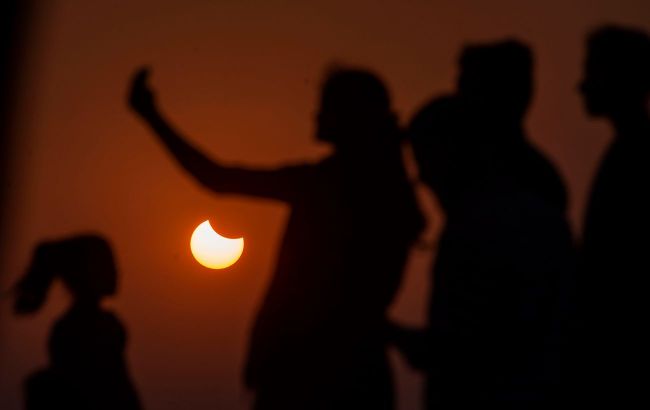Solar eclipse in March 2025: What not to do and how to prepare
 Solar eclipse in March 2025 (photo: Getty Images)
Solar eclipse in March 2025 (photo: Getty Images)
At the end of March 2025, we will experience a rare natural phenomenon - a total solar eclipse. This is an event that traditionally raises a lot of questions and superstitions. What really shouldn't be done on this day? How to prepare for the eclipse without stress?
When is the solar eclipse in March 2025
The total solar eclipse will take place on March 29, 2025. It will be best visible in North Africa, Spain, and Western Europe.
In Eastern Europe, there will be a partial eclipse - the sun's disk will be only partially covered, but it will still have a noticeable impact on the atmosphere and people.
What not to do during a solar eclipse
Despite the myths, there are some real-world recommendations to consider:
Don't look at the sun without protection
Even a partial eclipse can seriously damage the retina. Use special glasses to observe the sun or projectors with a dark film.
Don't plan important decisions and risky actions
Many studies show that people are more likely to experience stress, anxiety, and physical discomfort on eclipse days.
Don't believe in mystical prohibitions
You can eat, drink, sleep, or go outside. These are popular superstitions that are not supported by science.
How to prepare for the solar eclipse
Check the weather forecast. If you want to observe the phenomenon, find out if the sky will be clear in your area.
Prepare protective eyewear or filters. Do not use ordinary sunglasses - only certified products.
Be prepared for mood and well-being changes. If you are sensitive to changes in nature, reduce your workload on this day.
Teach children safety rules. Children often do not control impulses and may try to look at the sun without protection.
What science says about solar eclipses
Scientists from NASA, ESA, and other space agencies emphasize that a solar eclipse is primarily an interesting astronomical phenomenon that has no direct negative impact on health if safety rules are followed.
However, psychologists point out that such events can affect people's emotional state, increasing feelings of anxiety or, on the contrary, delight.
You may also be interested in:
Sources: NASA (nasa.gov), European Space Agency (esa.int), American Psychological Association (apa.org), Space.com.

